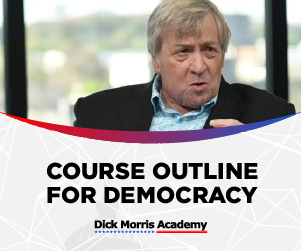OBAMA’S HEADWIND ON HEALTH CARE
The ups and downs of the published polls about Obama’s health care proposals dramatically illustrate the ferocity of the headwinds he faces as he desperately tries to sell his program to a suspicious and wary public.
Before Obama addressed the nation and a joint session of Congress, his proposals drew only 45% approval (Rasmussen). But after he spoke, support for his health care proposals rose until it peaked at 52%. Then, a scant week after his speech ended, public support had quietly but quickly eroded back down to 42%.
It is no surprise that a nationally televised presidential speech can move support for the chief executive’s program by 7 points. But it is shocking that – in the absence of any other major independent negative event – these new supporters would flee in the space of one week and that three percent more would move against him.
That spells big trouble for Obama. It means that the wind is blowing in his face as he tries to make headway for his health care program. This seven point post-speech slippage in seven days indicates that all the breakfast tables and lunch counters, and medical examining rooms are abuzz with conversation about health care changes, most of it negative to the president’s wishes.
There comes a time in the most heated of political debates when the small media drowns out the big media and the grass roots outgrow the giant trees. Nobody has the president’s huge microphone. But we all have voices and, when they swell to a chorus, they dominate the national dialogue.
Bush encountered such sales resistance over Iraq as Johnson did on Vietnam and Nixon over Watergate. No presidential speech or Congressional phalanx can out shout an aroused American public. All the tools of spin doctors and media mavens are useless in the face of a growing public, national consensus is this idea and this plan are fundamentally flawed.
It is, essentially, a program to force people who don’t need it to buy health insurance so as to lower costs for those who do and to subsidize part of the price tag by cutting medical care to the elderly.
Will the sixty Democratic Senators and the 76 vote House majority pass it anyway? It is hard to estimate a politician’s capacity for suicide or how easy it is to lead a political party into oblivion. But, certainly, when opposition to the president’s program grows from the current 42-55 disapproval into the 35-65 range, Congress must balk rather than march over the cliff.






